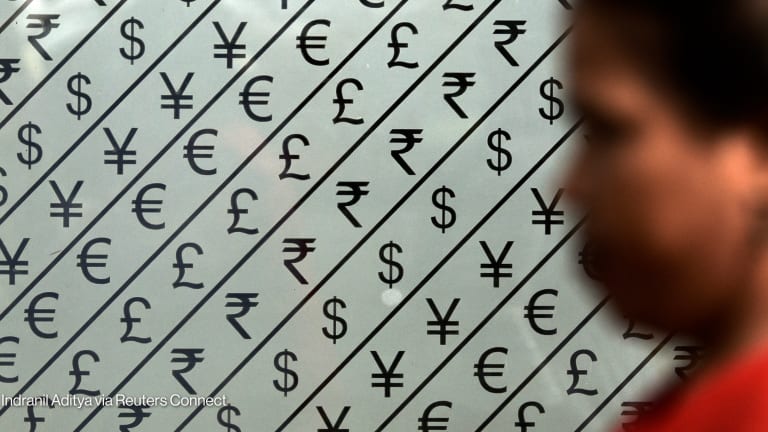
It is no secret that the United States has traditionally commanded major influence in the world’s multilateral development banks (MDBs). Due to the country’s shareholder status and resultant voting power in these institutions, for decades the U.S. has been in a unique position to set the MDB development agenda for various parts of the world. This is particularly true for fragile and conflict-affected areas, such as Afghanistan and Pakistan, where the U.S. has found that it simply cannot and should not go it alone and MDBs are now tightly engaged.
>> Looking Ahead: 2012 Aid Flows to Pakistan
>> Top Bilateral Aid Donors in Afghanistan
Today, there are some signs that the U.S. position is shifting, if not being threatened, potentially opening up gaps for other emerging nations to fill. For the first time since 1988, the world’s MDBs are simultaneously requesting increases to their capital bases which were depleted in recent years due to heavy lending during the financial crisis. Together, the requested capital increases are estimated at approximately $348 billion. While the U.S. is one of many shareholders being asked to contribute to the MDB General Capital Increases, or GCIs, the demands being placed on the U.S. are more acute because the country (a) is the largest shareholder in many of these banks and must increase its capital investment proportional to its share, and (b) is concurrently, and very publicly, struggling to trim its deficit and cut government spending overall. Failure to honor its pledges to the GCIs risks undermining American shareholder status and leadership among the MDBs and could pave the way for countries with stronger national balance sheets, specifically China, to gain more sway.
>> The US Debt Panel’s Failure and Its Impact on the Foreign Aid Budget
U.S. involvement in the world’s MDBs can be traced back to the conceptualizing and founding of these institutions, particularly the World Bank which was established during the 1944 Bretton Woods conference after the conclusion of World War II. The U.S. also championed the Inter-American Development Bank (IDB) in 1959 as a “soft power” measure against the threat of communism in the Latin American and Caribbean region. In 1991, the U.S. backed the creation of the European Bank for Reconstruction and Development (EBRD) in order to aid Europe during the post-crisis period of the Cold War. The U.S. was also active in the formation of the other regional development banks back in the late 1960’s, namely the African Development Bank (AfDB) and the Asian Development Bank (ADB).
Historically, the U.S. has been the largest shareholder at the World Bank, ADB, and IDB and is the largest nonregional shareholder at the other regional development banks. The U.S. draws influence from its shareholder capacity in all of the MDBs, which translates into voting power based on its weighted cumulative financial contributions and commitments. The obligation to these institutions affords the U.S. the right to weigh in on major policy decisions that are often put to vote. The U.S. also holds solo vetoing power at both the World Bank and IDB and conjoint vetoing power with Japan at the ADB.
GCIs, which differ from regular replenishment grants to an MDB’s concessional loan facility, are rare. Why the immediate need for GCIs? Since the global financial crisis hit in 2008, the World Bank and other multilateral development banks have provided crucial support to the global economy. The MDBs stabilized the balance of payments in many developing countries and shored up capital for the hard-hit private sector. For example, between fiscal years 2008-2010 the World Bank’s IBRD increased its loan commitments from $13 billion to $34.6 billion for a total commitment of $103.8 billion. In order to replenish the amount of paid-in capital used to supplement their concessional loans to developing countries, the MDBs have called for an across-the-board increase in all member shares. Due to their optimal AAA rating, MDB capital is leveraged in the international markets, thus increasing the scale of their development lending and financing operations.
The U.S. has not faced GCIs in two decades and this is the first time that four of the MDBs are simultaneously requesting them. The last capital increase granted by the U.S. to the World Bank in 1988 leveraged $420 million to support $325 billion in projects around the world. The Obama administration’s 2012 request for capital replenishment amounts to $2.17 billion with a cumulative request for $3.3 billion in total spending for the MDBs (see table).

In today’s difficult budget and political climate this is a tough pill to swallow, but it is probably easier to make the case for continued American investment and leadership in the MDBs than to argue for cutbacks. There are several important national interest arguments to consider. Proponents of continued MDB investment and compliance with the GCIs highlight the ancillary commitment of MDBs in Afghanistan, Iraq, and other conflict-ridden regions where the U.S. has made near immeasurable bilateral investments. Also, by supporting growth in emerging economies the MDBs are spurring U.S. business and trade opportunities within critical emerging markets. Furthermore, over $30 billion in contracts are awarded each year to complete projects financed by the MDBs and, as a shareholder and member country, U.S. companies are eligible to bid on almost all of them. While competition is fiercer now than ever and more of these projects are being awarded domestically, the Congressional Research Service and U.S. Treasury Department suggest that the GCIs may offer an opportunity for U.S. firms to better position themselves to capture a larger share of MDB projects. In 2010, $93.1 million of World Bank contracts were awarded to U.S. firms.
There may be some dark clouds looming ahead of the congressional debate over MDB capital funding. Unlike the rest of the MDBs, ADB made its GCI request a year early in 2009 so the Obama administration already included the GCI request of $106.6 million – the first of five installments – in the fiscal 2011 budget. While the appropriation was approved by the U.S. Senate, it did not pass the Republican-led House of Representatives. Then last October, a congressional sub-committee achieved bipartisan support and passed the bill to appropriate funds for the other three MDBs. Analysts predict, however, that the challenge will be its passage through the House Appropriations committee for fiscal 2012 where the House is perceived to endorse significant cuts to foreign aid spending.
If the appropriations for the GCIs are not authorized by the U.S. Congress and American shareholdings decrease, the unfunded shares will be moved to unallocated capital, passing on the opportunity for other countries to buy-in. Enter China – the globe’s only economic savior left with a rapidly building foreign assistance ambition and portfolio. Last year, there was a noticeable shift in voting power at the World Bank when China’s share rose to 4.4 percent from 2.8 percent, effectively putting China in a more favorable voting position than the U.K., France, and Germany. Other studies indicate that the Chinese government’s aggregate foreign aid increased from $51 million in 2002 to $25 billion in 2007. According to the Financial Times, China lent more money to developing partner countries in 2009 and 2010 than the World Bank.
Aileen Cruz contributed to this report.
Read more:








